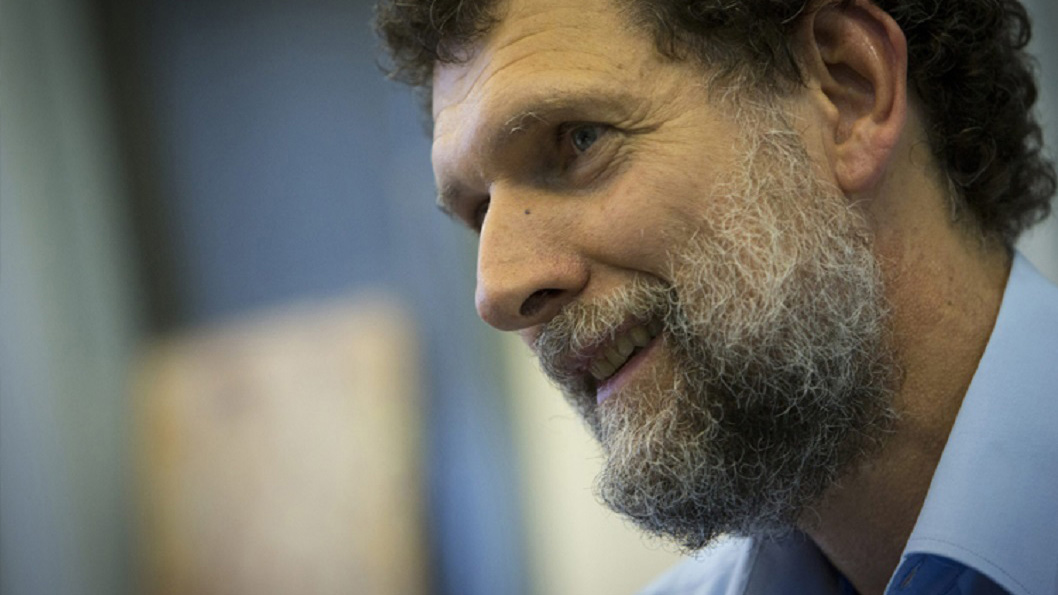Smear campaign against human rights advocate Osman Kavala advertised as TV series: Metamorfoz, broadcast at Turkish Radio and Television’s digital platform tabii, has released its second episode after a long pause. Metamorfoz centers on Kavala’s repeatedly debunked espionage allegations. Kafka, who is frequently cited in relation to Kavala’s unlawful trial, is also instrumentalized in the series’ manipulative historical narrative.
TRT (Turkish Radio and Television Corporation) attempted to rewrite the personal history of Osman Kavala, who has been imprisoned for nearly six years despite the European Court of Human Rights (ECHR) ruling for his release, with the series Metamorfoz (2023-), broadcast on its new digital platform tabii. Can Nergis plays the character of Teoman Bayramlı, who is fictionalized through Kavala in the series, which aims to discredit rights defender and businessman Osman Kavala, who was sentenced to aggravated life imprisonment in the Gezi Resistance case. The screenplay of the series was written by Mustafa Burak Doğu, who is also the screenwriter of Diriliş Ertuğrul (2014-2019). The director is Murat Onbul, who directed the first season of Leyla ile Mecnun (2011) on TRT, which was canceled due to its cast’s participation in the Gezi Resistance. The trailer makes frequent references to the Gezi Resistance protests and Kavala, but neither at the beginning nor at the end of the series is there a warning that “It has nothing to do with real people and organizations”.
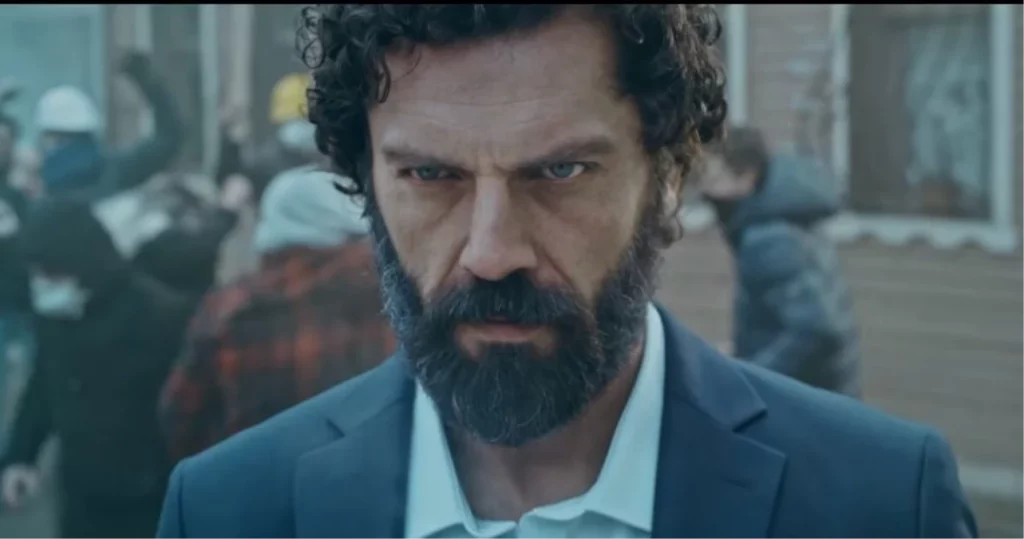
Slogan “unifying”, content divisive
The story of Metamorfoz, which has only aired its first episode, is described in the same way in the promotional texts and in the statements of the actors. Accordingly, the series tells the story of Teoman Bayramlı, a former leftist who becomes a capitalist when he takes over the company after his father’s death.
In real life, it is known that Osman Kavala reluctantly entered the business world after his leftist student years, and devoted himself to non-profit cultural activities with Anadolu Kültür, which he founded in 2002. Allegations of espionage against Kavala have been repeatedly debunked. The fact that Metamorfoz distorts this life story and focuses on the motif of transformation and espionage gives a strong impression that the aim of the series is to turn reality upside down with a manipulative historical narrative. The fact that TRT’s digital platform tabii, whose slogan is “stories that unite us”, started broadcasting on May 7, 2023 with such a divisive and antagonizing content is the factor that increases the reactions against the series.
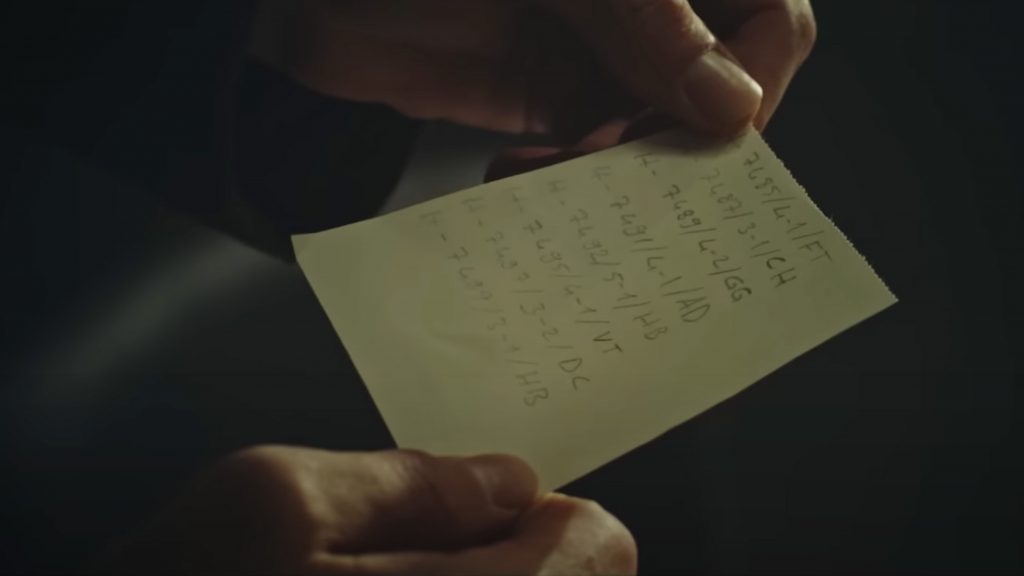
First episode: Footsteps of the revolution!
The first episode of the series, titled “Footsteps of the Revolution!”, which points to the concept of metamorphosis (“metamorphosis” according to TDK) with its title, also includes a reference to Franz Kafka’s story of the same name. In a dialog between two employees of the newspaper Aleniyet in which Kafka’s story is mentioned, the following statements are made: “Real metamorphosis is not like that, you don’t wake up one morning and turn into an insect, whatever happens, happens gradually.”
Immediately afterwards, the newspaper employees find a note on their desks. The numbers, which they first thought were a code, turned out to be newspaper clippings from various dates, said to be so important that they would “rewrite Turkey’s history”. Thus begins a story of “slow transformation” that moves back and forth between these dates. It is noteworthy that the series, which generates conspiracy theories about the history of Turkey through newspaper clippings pointed to by a notepad, tells the story of “the transformation of an anti-imperialist into a capitalist” in a style emulating American TV series.
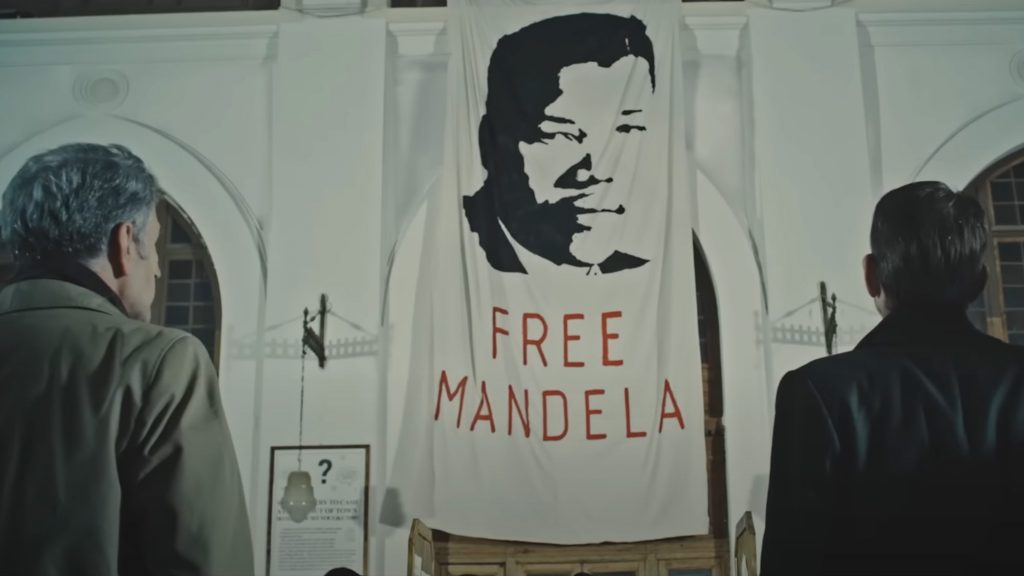
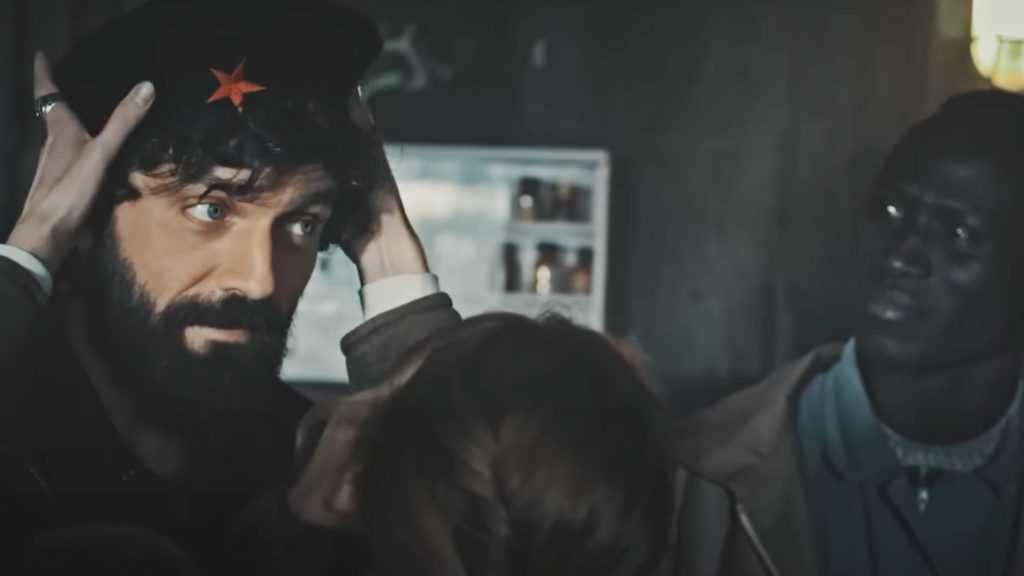
In the first episode of the series, Teoman Bayramlı is portrayed as a revolutionary young man who protests against apartheid in South Africa for Mandela’s release; he even plays a role in the assassination attempt on an arms dealer named Buxton, who helped the apartheid regime. Although the series imply that the transformation will be a slow one, it quickly jumps from 1982 to 1987, transforming Bayramlı’s character into an ambitious businessman who, while publishing a magazine, is also involved in hotel and technology (computing) businesses.
Contrary to what the series suggests, Osman Kavala is known as a figure who, in Yıldırım Türker’s words, “played hardball in the capital game” and devoted himself to civil society work. Contrary to the story presented by the series, in real life Kavala is not someone who has turned his back on the principles and values of leftist thought and democratic culture.
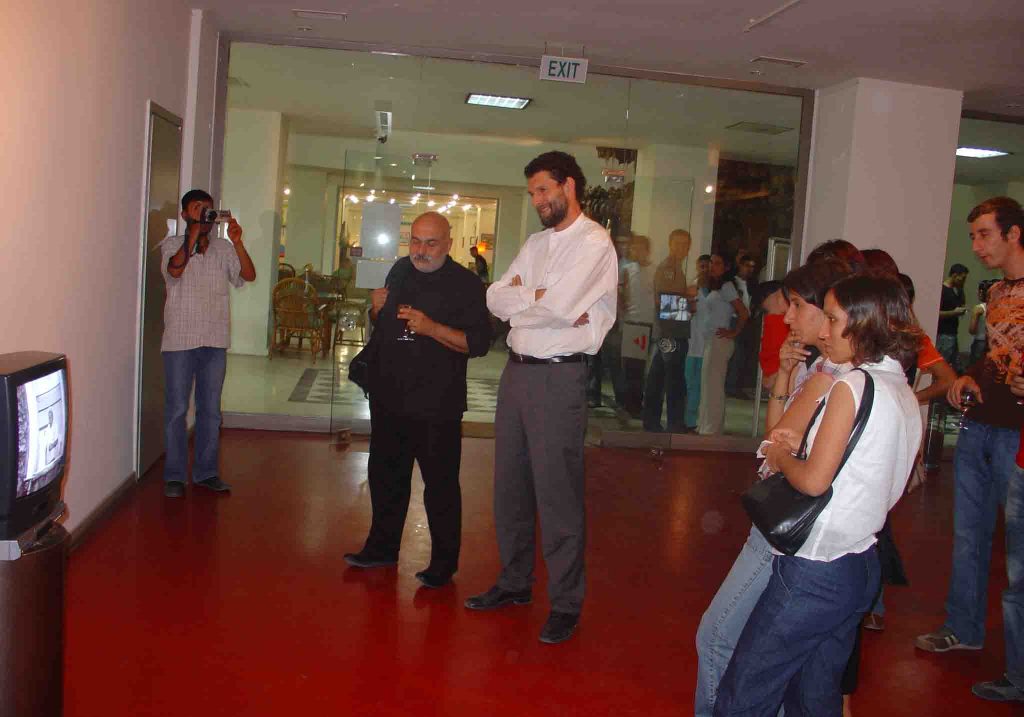
For example, while the AKP government and the liberal circles that supported the government’s policies at the time remained silent in the face of the unlawfulness in the Ergenekon trial, Kavala wrote an article criticizing these practices. In this article, written with lawyer Haluk İnanıcı in 2009, Kavala drew attention to the principles of law and predicted that the trial had evolved into a line targeting journalists and members of civil society organizations. In an interview with Express in October 2022 while in prison, Kavala also criticized the trials in which Gulenists were influential and pointed out that the state of emergency declared after the July 15 coup attempt had institutionalized methods of interference in the judiciary. Kavala is also a rights defender who, through Anadolu Kültür, supports local initiatives, disadvantaged groups, different languages and cultures, and has carried his knowledge of anti-colonial culture throughout his life and the geography of Turkey.
Metamorfoz distorts Kafka too
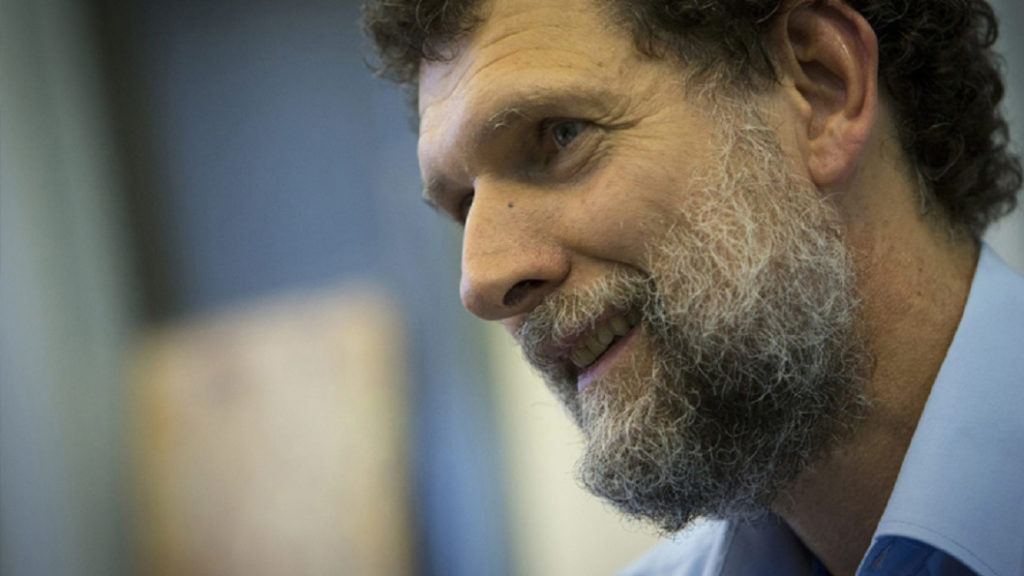
With the Metamorfoz series, TRT not only tries to turn this reality on its head, but also uses Franz Kafka, who was frequently referred to during Kavala’s trial process full of unlawfulness, as a tool for this manipulation. To recall, Kavala’s trial process was likened to a “Kafkaesque legal spiral”. In the nearly six years he has been in detention, Kavala has been released three times and acquitted once, only to be re-arrested each time on different charges, including the Gezi Resistance, the July 15 coup attempt and espionage activities. In 2020, despite his acquittal on charges of “overthrowing the government of the Republic of Turkey”, he was detained again, this time in connection with the July 15 coup attempt. At the end of this new process that started in 2020, he was sentenced to aggravated life imprisonment for “attempting to overthrow the government of the Republic of Turkey” with the decision taken on April 25, 2022, and acquitted of “espionage” charges.
Metamorfoz seems to be based on the espionage charges against Osman Kavala. Lead actor Can Nergis’s statement that it is “a spy story that will appeal to the world” confirms this. The scriptwriters and producers seem to have designed the series’ story around various hypothetical conspiracy theories, moving back and forth between pieces of Kavala’s unlawful trial that are not supported by any sort o evidence.
Kavala: Conspiracy theories are used to create the perception that I am guilty
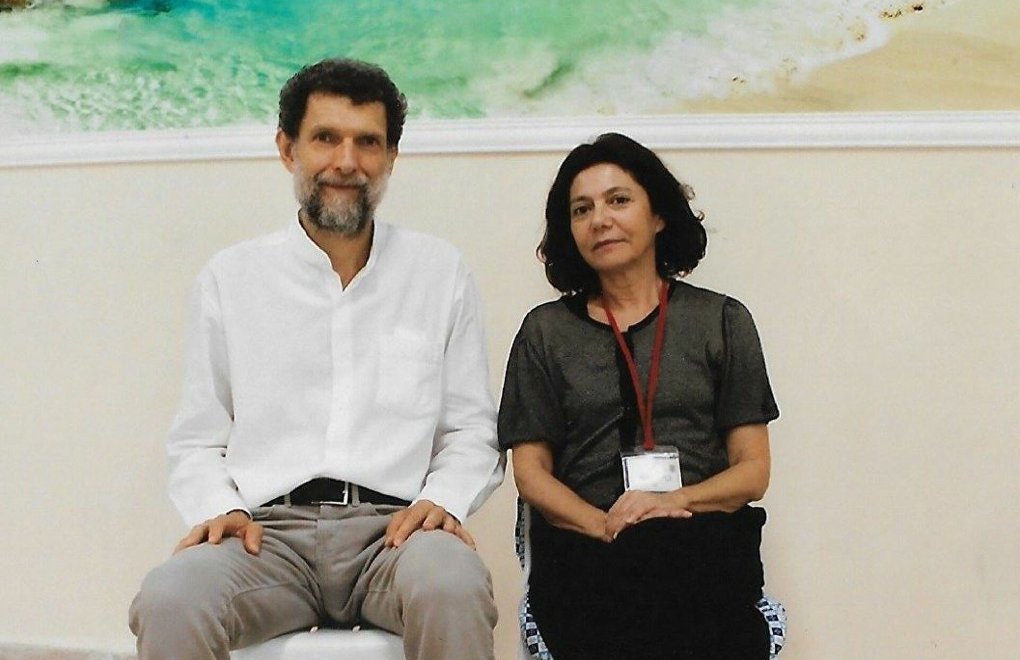
The fact that such a series was filmed while Kavala’s trial was ongoing caused public outcry. While many social media users criticized the series, Kavala’s wife Prof. Dr. Ayşe Buğra’s statements on the subject were also reflected in the media. Reporting Buğra’s statements, Halk TV reported that she said that the series was “part of a smear campaign”.
Subsequently, Osman Kavala also shared his views on the series in a written statement. Stating that TRT did not explicitly use his name in the series because it did not want to get caught in a legal obstacle, Kavala said, “It is understood that the aim is to create the perception that I am guilty with conspiracy theories.” Expressing that he is not surprised that public resources are used for such a project in which the facts are distorted, Kavala stated that he is saddened that young artists take part in “this project of assassination of reputation” and that they are not disturbed by it.
Saturday Mothers: TRT must stop the series immediately
Another statement on the series came from the Saturday Mothers/People, of which Kavala is a supporter. In a statement issued by the Saturday Mothers, who are considered to have organized the longest protest in the history of the country, searching for their forced disappeared children’s bones, it was reminded that TRT is “obliged to make public broadcasting in accordance with the principles of impartiality, reality and accuracy” and said, “In accordance with this obligation, TRT should stop the attempt to create a criminal perception on Kavala and immediately stop the production and screening of the series.”
Rıza Türmen: Kavala is Turkey’s Dreyfus
The pro-peace/socialist opposition Green Left Party’s Diyarbakır MP Cengiz Çandar brought the series targeting Kavala to the parliamentary agenda. “It is scandalous that TRT, which operates with taxes paid from the pockets of citizens, is used as a tool in a politically motivated perception operation, and that it has broadcast a show that accuses Osman Kavala of ‘espionage’ and is a character assassination of his reputation,” Çandar said in his parliamentary question, which is supposed to be answered by Vice President Cevdet Yılmaz.
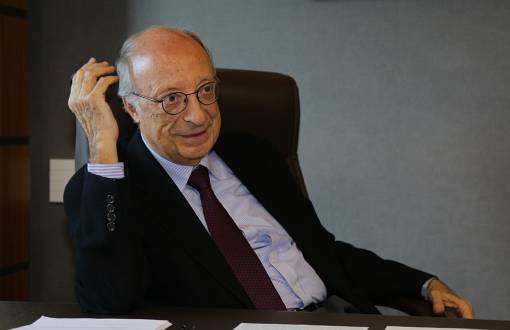
Rıza Türmen, one of Turkey’s leading human rights lawyers, described Kavala as “Turkey’s Dreyfus”, recalling the years when Alfred Dreyfus, an officer convicted on espionage charges and acquitted years later in 1906, divided French society. Türmen added that if Osman Kavala is blamed in the episodes where the Gezi Resistance is mentioned, Metamorphosis will take on the character of a series against the ECHR ruling.
Bahadır Özgür. Metamorphosis is a kind of re-stigmatization
Bahadır Özgür, together with Hakkı Özdal on Artı TV’s Artı Eksi program, argued that President Erdoğan’s politics is based on “keeping the target alive” and that the Metamorphosis series is a continuation of this antagonizing politics: “You don’t have to kill them completely, sometimes you even have to make their lives more visible, more marked. So the series on Osman Kavala is a kind of re-stigmatization. By reproducing and reproducing the Gezi protests of 2013, which are over and gone, perhaps nostalgic, it is compelled to constantly put the ‘Gezi’ segment in front of its own segment.”
PEN: A new step in the AKP government’s violation of legal principles
International culture and arts community also reacted to the series. BirGün reported that cultural and media organizations in Germany issued a joint statement condemning TRT for the series that defames the imprisoned Kavala. In a joint statement, the Turkey-Germany Cultural Forum, the Academy of Fine Arts (Akademie der Künste), Reporters Without Borders, the International Writers’ Union PEN Berlin and PEN Germany Center condemned the series as “a new step in the AKP government’s violation of the principles of humanity and law, in which Osman Kavala is accused and targeted as an ‘enemy of the state’.”
“Inciting Turkish public opinion against Osman Kavala is a violation of the basic principles of journalism and the principle of respect for the fundamental rights of a detained person,” the statement said, listing the responsibilities that the Saturday Mothers reminded TRT of. The cultural institutions called on all civil society organizations and the international community to fight for Kavala and all political prisoners in Turkey.
Mi Minor: Also targeted
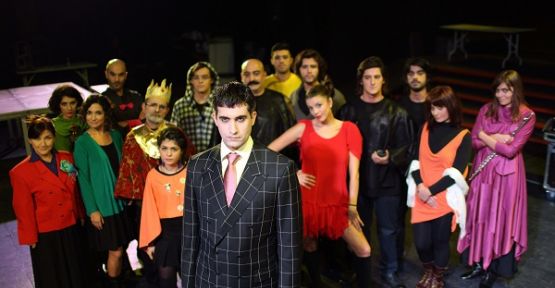
In the first episode of the series, there is a reference to the theater play Mi Minor, which led to the prosecution of famous actors Memet Ali Alabora and Pınar Öğün in connection with the Gezi Resistance. The character Pınar, who works at Aleniyet newspaper, says that she saw a great theater play, while her colleague says “I didn’t like the acting of the boy in the lead role” as the reason for not going to the play and describes the play as “the play in which the president is overthrown with tweets”. As it can be remembered, the indictments in the Gezi trial alleged that the play ‘Mi Minor’, staged in 2012 while the parliamentary system was still in place, “rehearsed the Gezi protests.” Alabora and Öğün, who were involved in the production of the play, were targeted by Yeni Şafak newspaper and forced to leave the country. Another reason why Memet Ali Alabora was targeted was his tweet “It’s not just about Gezi Park, my friend, haven’t you understood yet? Come on.” The investigations into his tweet resulted in non-prosecution in 2013 and 2014.
After a long pause of nearly two months, the second episode of the series has been released on July 13. The airing of the episode shows that TRT stands behind the series which is clearly full of disinformation.


